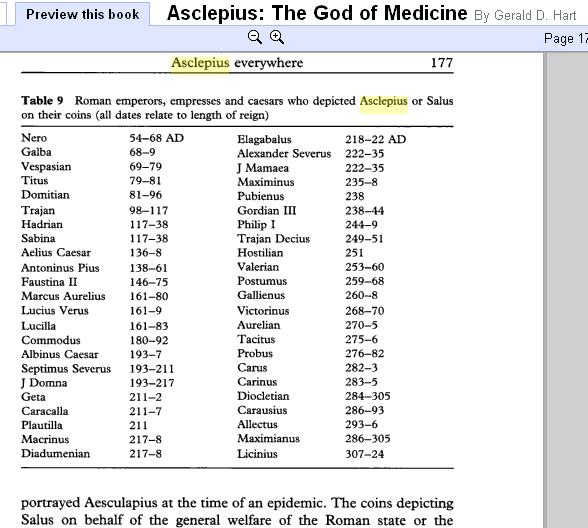
 |
Freethought & Rationalism ArchiveThe archives are read only. |
|
|
#311 |
|
Contributor
Join Date: Jun 2000
Location: Los Angeles area
Posts: 40,549
|
I'm sure that having "Lane Fox" as a compound last name without a hyphen messes up some computerized systems. That's why there are a few instances of Lane-Fox.
|
|
|
|
|
#312 | |
|
Veteran Member
Join Date: Oct 2004
Location: Bordeaux France
Posts: 2,796
|
Quote:
The greek word is : καὶ σαρκωθέντα The root of this word is "sarx". Sarx = flesh, or (secondly) body. There has been here a long discussion about the word "sarx", and perhaps you could find it in the archives. 2. "made man". The greek word is : καὶ ἐνανθρωπήσαντα The root of this word is "anthropos". Anthropos = human being, person (man or woman). |
|
|
|
|
|
#313 | |
|
Veteran Member
Join Date: Nov 2011
Location: UK
Posts: 3,057
|
Quote:
Is 'grim' synonym for 'rational'? Surely, in the context of Genesis 1, that which creates is deity? So Mary is YHWH? God, come to us in the flesh? |
|
|
|
|
|
#314 | ||
|
Veteran Member
Join Date: Nov 2011
Location: USA
Posts: 4,095
|
Thank you. I guess this means there is no ambiguity. So we can still wonder why the word anthropos was insufficient to signify a physical being, requiring the word incarnate.Even without mention of birth from a woman as would be implied in Galatians 4 if the authors of the Creed knew about Galatians.
Quote:
|
||
|
|
|
|
#315 |
|
Veteran Member
Join Date: Nov 2011
Location: USA
Posts: 4,095
|
So all that can be said here is that the author of the "original Nicene Creed" felt that being made a man was not definitive enough as a physical human body such that the author needed to also say he was incarnate as flesh.
The author either didn't care or didn't know that the Jesus figure was supposed to be born to Mary - perhaps the "official sources" didn't exist yet. He was merely incarnate in the flesh as a physical person and "suffered" before "rising" and going straight up to heaven. And then return to judge the "quick" and the dead. It does even say that he DIED and was RESURRECTED. Merely that he suffered and rose on the third day, which on its own could mean anything. He is not intimated as a Jewish messiah figure at all. It almost sounds as if belief in his mere being on earth was and is salvation enough, regardless of anything else. On its own merits the original Creed could have emerged from any source or culture other than Judaism by far. |
|
|
|
|
#316 | ||
|
Veteran Member
Join Date: Nov 2011
Location: USA
Posts: 4,095
|
Since the original Nicene Creed gives no indication that this religion grew out of Judaism or Judea or had anything to do with a messiah figure, is it possible that someone knowing nothing about the context of this Creed might identify it with a particular pagan cult, and if so, which one might the Creed most closely resemble of known Roman pagan cults?
Quote:
|
||
|
|
|
|
#317 | ||
|
Contributor
Join Date: Mar 2006
Location: Falls Creek, Oz.
Posts: 11,192
|
Quote:
One might commence with a look at the Roman Emperors and their role as "Pontifex Maximus" and how they exercised it and what cult they preferred and how they glorified it etc Quote:
Another method might be an examination of coins .... 
|
||
|
|
|
|
#318 |
|
Veteran Member
Join Date: Nov 2011
Location: USA
Posts: 4,095
|
And which of those then might the original Creed of 325 most closely resemble?
|
|
|
|
|
#319 |
|
Contributor
Join Date: Mar 2006
Location: Falls Creek, Oz.
Posts: 11,192
|
The cult of the Creed Oath of 325 appears to be new and strange.
Somehow Moses pulled rank on Plato. |
|
|
|
|
#320 |
|
Veteran Member
Join Date: Nov 2011
Location: USA
Posts: 4,095
|
However I suggested that there is nothing Judaic in the words of the original Nicene Creed that could even be specifically identified with the NT texts. It could have reflected some other religion.
|
|
|
| Thread Tools | Search this Thread |
|